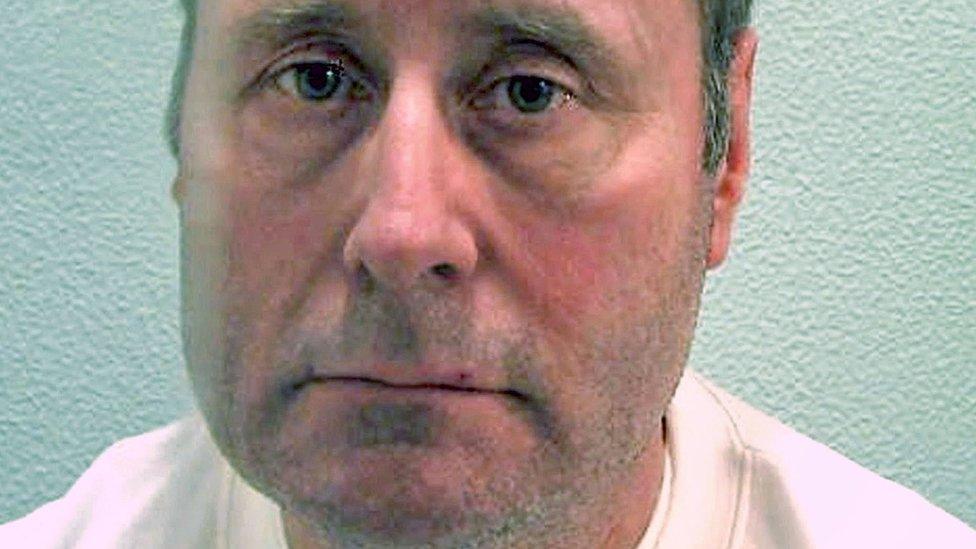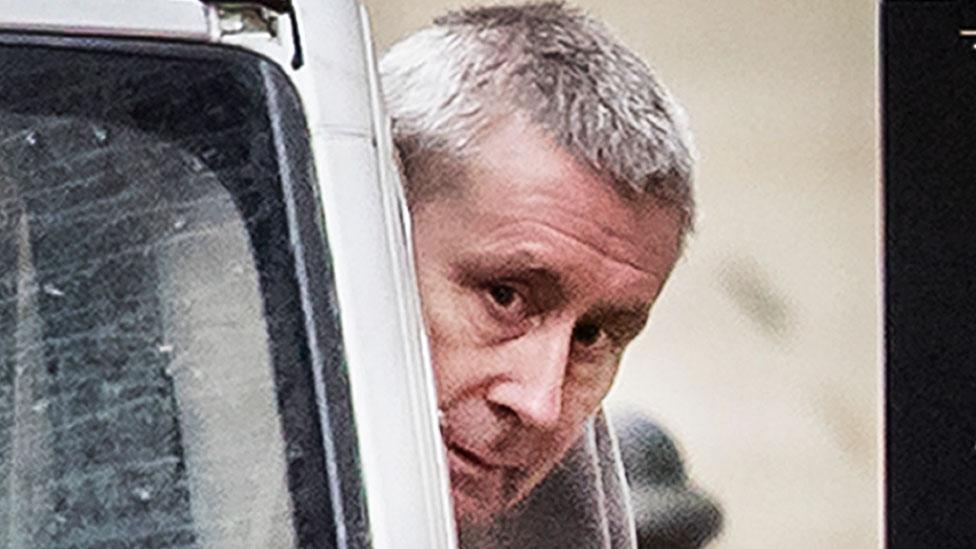Parole Board: No black panel members a 'significant concern'
- Published

The new chairwoman of the Parole Board has said it is a "significant concern" that none of its 240 members is black.
Caroline Corby said just 13 members were from an ethnic minority.
She said "unconscious bias" had affected recruitment for the board, which decides when serious offenders in England and Wales can leave jail.
Mrs Corby replaced Nick Hardwick, who was forced to quit after the High Court overturned the board's decision to free serial sex offender John Worboys.
In her first interview since her appointment, she said the Worboys case had caused a "loss of confidence" among board members.
The High Court said in March that the three-person panel which approved Worboys' release had failed to explore a wider pattern of alleged offending that cast doubt on his credibility.
Professor Hardwick stepped down as chairman after being told by the justice secretary that his position was untenable.

John Worboys was jailed in 2009 for a string of sex attacks on women
The Parole Board release rate stood at 49% before the Worboys case, but fell to 42% in the aftermath. It is now 46%.
There has also been a rise in the number of hearings that are postponed because parole panel members are asking for more information before making decisions.
"It was obviously a very difficult period for the board," Mrs Corby said.
"We saw the departure of our previous chair in difficult circumstances, the board was subject to unprecedented amount of publicity, the like of which we haven't experienced before, and I think there was a loss of confidence amongst ourselves a little bit."

Who is Caroline Corby?
The second woman to chair the Parole Board in its 50 years has had a varied and unusual career.
After obtaining a maths and statistics degree, she spent 13 years working in the City of London, specialising in private equity, before leaving to look after her three young daughters. She began writing, and had six novels for children published on historical figures including Cleopatra, Boudica and William the Conqueror.
Mrs Corby has also served as a magistrate and in 2007 joined the Board of London Probation Trust. She became a member of the Parole Board's management committee three years ago, took over on a temporary basis in April and was confirmed in her post in November, on a three-year contract.
She works two days per week, which allows her time for roles in other organisations, among them the Criminal Cases Review Commission.

Asked whether she could be removed from her role in the way her predecessor had been, Mrs Corby said she didn't think the same circumstances would be "repeated" because independent checks and balances had been built into her contract.
The Worboys case prompted a series of changes at the board, including new rules allowing victims of crime to read summaries of parole decisions - 500 have been issued so far.
An in-house lawyer has been hired to bolster the quality of its legal expertise, a process for reviewing decisions is set to be introduced, and the government is considering wider reforms.
Mrs Corby said she was also determined to make the board more representative of the population and the prisoners whose cases they deal with.
Recruitment drive
The latest Ministry of Justice figures show there are 22,000 ethnic minority inmates in England and Wales, representing 26% of the jail population. More than 10,000 of them are black.
However, only 13 - or 5% - of Parole Board members are from an ethnic minority, none of whom is black.
"At the moment we have no black Parole Board members and that's of significant concern to me," said Mrs Corby.
A campaign to recruit 100 Parole Board members in 2016 and 2017 tried to address the shortfall, she said, but it had not attracted enough ethnic minority candidates and a disproportionate number of those who did apply failed to get through the selection procedures. A new recruitment drive is being launched next year.
"There must have been some kind of unconscious bias in those processes... we're not going to have those processes next time around," she said.
Unconscious bias is when someone's own background or societal stereotypes lead them to make quick judgements about others without realising.
These judgements may be based on characteristics including someone's age, gender, sexual orientation or ethnicity.
- Published28 March 2018

- Published28 March 2018

- Published28 March 2018